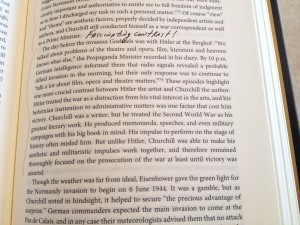It is undeniable that God has housed us in bodies. It is also undeniable that these bodies affect what we typically label our “souls” or “spirits.” Many times during the course of the day we are reminded of this fact. Migraines make it more challenging to pray. Pushing ourselves during a workout can make depression recede. We need help in this area as the much written about Gnostic tendencies of many modern-day Christians continues apace.
Breakthroughs in technology and research are allowing us to peer more deeply into our physical selves. Rob Moll’s new book, What Your Body Knows About God (http://www.amazon.com/What-Your-Body-Knows-About/dp/0830836772/ref=asap_bc?ie=UTF8) is a well-written and accessible account.
Moll is an award-winning author, editor-at-large with Christianity Today, and communications officer to the president of World Vision.
Moore: As a young Christian I read Being Human (http://www.amazon.com/Being-Human-Nature-Spiritual-Experience/dp/0830815023) during a time of study at L’Abri in Switzerland. It helped me understand the ever-present Gnostic tendency in American Christianity. How does your book remind us that bodies are not bad things, but divinely designed for a purpose?
Moll: What Your Body Knows About God is a celebration of our bodies, created in God’s image. We ought to marvel and be filled with awe as we understand just how God has created us, and how God’s design leads us toward worship, love, and a better life.
For example, you mentioned that exercise can stave off depression. So does prayer. Prayer also leads us to be more compassionate. Not just because being closer to God makes us more like God in a spiritual sense. But prayer stimulates parts of our brains involved in compassion. We also have these mirror neurons that help us mimic the expressions and behavior of other people. So we can literally feel what another person is feeling. We can actually love our neighbors as ourselves, because God gave us the biology to do so. It is inspiring and motivating to realize this.
Moore: Did your previous book, The Art of Dying (http://www.amazon.com/The-Art-Dying-Living-Fully/dp/0830837361) affect your motivation to write What Your Body Knows About God?
Moll: Absolutely. I can’t tell you how many times I would hear people at a funeral say something like, “Well the body is just a shell. She’s still with us.” When you’ve got the flu you don’t say your body has the flu, but the real you doesn’t so you might as well finish mowing the lawn. No, when your body has the flu, you have the flu. When your loved one has died, you grieve because you can’t be with that person any more. We mourn and weep because someone’s death isn’t just a death of the body. It is a death of the person. And our hope is not in a disembodied life in heaven. Our hope is in the resurrection of our bodies.
What I realized working in a funeral home and with hospice patients was that people who tend to deal well with grief, people who mourn productively, are those who deal with the body. Regarding death, they have a funeral with a body present; they carry the body to the grave and lower it into the ground. They might put a shovel full of dirt on top of the casket. They do things that recognize the body matters, and when we deal with the body in this way we deal with grief much more productively. So, I wanted to pursue a book that looked at why our bodies are so essential to our spiritual lives.
Moore: What encouragement would you give to those who feel that they have irreparably abused their bodies?
Moll: Our bodies are not static. If we have done something to abuse our bodies, that changes us. It can change us deeply. But it doesn’t have to be permanent. An addict may always be affected by the substance they abused, but we can overcome addictions. We can take steps toward changing ourselves in positive ways.
The brain is plastic. Everything we learn gets encoded into our brains by the growth and development of neurons. Our neurons are constantly growing and changing; therefore we are changing too. If the stroke victim can learn to walk or the 80-year-old can learn to play the piano–and they can–we can take advantage of our plastic brains and change for the better.
Moore: You have a wonderful section on how beauty affects us. How important is it that we pause and consider that we are created with five senses?
Moll: Our brains process information by slicing it into pieces and storing it in different parts of the brain. In fact, one brain researcher says the brain processes information like a blender with the lid off, spraying data all over the inside of our skulls.
This matters for our worship. We often want people to remember a lesson from Sunday, so church is often like a class. But classrooms are terribly designed for learning. If we want people to remember things, if we want them to have meaningful experiences in church that go on to make a difference in their lives, then we need to do more than give them pieces of information.
That’s where beauty comes in. Since our brains are splicing up all this data, the more data we have the better. We can much better remember information that makes use of all our senses. A story, a theological truth, combined with visual beauty, a smell, music, and movement (like crossing ourselves) can turn a dry fact into something rich with meaning and value. In other words, the cathedral will always beat out the mega church as a site for worship.
Moore: How do habits help us utilize our bodies in productive ways?
Moll: We have two brains: our intuitive brain and our rational brain. The vast majority of our thinking happens intuitively, without our consciously paying attention. We’ve all found ourselves pulling into the driveway and suddenly realizing that we hadn’t been paying any attention to how we got there. Our brain has been on autopilot. That’s not a good thing when we are driving, but it is a totally normal thing. Our brains want to be so good at processing routine tasks that more and more of our thinking is on autopilot.
That’s why spiritual disciplines help us so much. They take an activity and use it to put spirituality on autopilot. We learn to pray automatically about whatever confronts us in our day. We develop discipline around our cravings because we fast. We learn to hold our possessions loosely because we tithe. Our faith shouldn’t be thoughtless, but if we are to become more like Christ we need the disciplines to make Christlikeness normal and natural.
Moore: A number of findings show that depression can be greatly helped by regular exercise, eating well, and consistent sleep. This certainly does not discount the wise use of drugs at times, but how can we better encourage the depressed to avail themselves of non-chemical treatments?
Moll: It is my understanding that for people with minor depression, prayer is as effective as medication. And prayer’s side effect is merely greater compassion! However, sometimes our bodies or our brains simply aren’t functioning correctly. So we they need medical help. That’s okay too.
My concern isn’t really whether people use chemical or non-chemical treatments. My concern is that our culture and our churches pressure people to behave in “normal” ways–often ways that are unhealthy and that contribute to their anxiety or depression. We have little patience for people who might be suffering from some mental health or other health problem. Something like twenty percent of people are currently prescribed behavioral medication. (http://usatoday30.usatoday.com/news/health/healthcare/health/healthcare/story/2011-11-16/Report-1-in-5-of-US-adults-on-behavioral-meds/51241236/1) That’s one in five people.
So for me the question isn’t whether or not they should get chemical help. (They should get help that works!) The real question is not what are they doing but what are we doing? How are we caring for our loved ones, our neighbors, our friends at church who are suffering from anxiety, depression, or other disorders? How are we helping them to live well? There’s a pretty good chance that fewer people would need medication if more church members lived compassionately.
Moore: Most of us have taken the transformation spoken of in Rom. 12:1,2 as simply a metaphor of sorts. Do you think recent research about the malleability of the brain (neuroplasticity) is showing that there actually is a physical change to our thinking organ which comes from repeated behaviors?
Moll: We take these verses as a metaphor, but I’m not sure Paul did. He wrote that we should be transformed by the renewing of our minds. When you read about the effects of prayer on our brains and how compassion leads to healthy lives, how the good life–scientifically speaking–is one lived with empathy for others and is filled with a sense of meaning and purpose, then you start to think that the biblical writers knew a lot more than we give them credit for.
So, yes, research is showing that whether or not Paul intended to use a metaphor, he didn’t need to. Our spiritual lives–especially when we engage Scripture, worship, and prayer with all of our attention–will literally transform our brains.
We can become spiritual because we are made physical.


